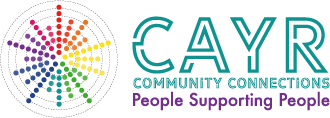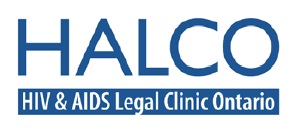Based on changes to the reporting regulation of the Health Protection and Promotion Act (HPPA), the names and contact information of people who test positive for HIV at anonymous testing clinics may not necessarily be reported to Public Health authorities in Ontario.
In Ontario, Public Health authorities are legally responsible for protecting the health of people in the province. Public Health is organized into 36 separate regions, each with their own Public Health unit. Public Health units’ responsibilities include the prevention of transmission of various infections, including HIV. Public Health staff counsel people about sexual health, safer sex, and, HIV and sexually transmitted infection (STI) prevention. Public Health staff also have the legal power to issue orders against people believed to be acting in a manner that poses a risk of transmitting HIV or another STI. A Public Health unit in one region may use its powers differently than a Public Health unit in another region.
As a result of the reporting regulation changes, laboratories, physicians, and registered nurses (in the extended class) are not required to report to Public Health the names and contact information of patients who have an anonymous viral load test after having their initial HIV test at an anonymous testing clinic. People who have their initial HIV test at an anonymous testing clinic must ask their physician to use their positive anonymous HIV test code to have their subsequent HIV viral load tests be anonymous.
HIV Testing
In Ontario, there are two ways to get tested for HIV: nominal testing and anonymous testing. A person must give “informed consent” before being tested, whether the test is done nominally or anonymously. Informed consent means that the person being tested:
- -understands the procedures and the consequences of being tested, including Public Health reporting requirements;
- -receives pre- and post-test counselling to prepare for the test and test result; and
- -gives permission to be tested.
Nominal testing
Nominal testing means a person is tested using their own name. If a nominal test is positive for HIV, the HPPA requires the testing laboratory to report the test result to Public Health with the person’s name, date of birth, gender, and contact information. The local Public Health unit will then contact the newly diagnosed person for counselling and support, and refer the person to HIV-related services. In addition, Public Health requires that the sexual and needle-sharing partners of the newly diagnosed person be notified that they may have been exposed to HIV. This is known as contact tracing, partner counselling, or partner notification. Depending on the circumstances, Public Health may allow the newly diagnosed person or their physician to notify the partners (but Public Health will likely require proof of the notification). More likely, however, Public Health will do the partner notification directly. Public Health authorities should not disclose the name of the newly diagnosed person to the partner contacts, but the contacts might guess who the person is.
Anonymous testing
Anonymous testing means a person is tested without providing their name or personal information. Anonymous testing is only provided at specific facilities listed under the HPPA. If an anonymous test is positive for HIV, the testing laboratory will inform Public Health about the positive test result but not the person’s name or contact information. The HPPA creates a special exception for physicians and registered nurses who provide professional services at anonymous testing clinics so that they are not required to report the name and contact information of a person who tests positive, as long as the person, before having the test, received counselling about preventing the transmission of HIV. The person tested at an anonymous testing clinic will be given a code for their positive anonymous test result.
Until the HPPA changes were implemented, physicians or registered nurses who provide professional services outside of anonymous testing clinics were required to report patient names and contact information to Public Health even if the original positive test was at an anonymous testing clinic (see Nominal testing above to find out what happens when a person is reported to Public Health). Also, although not required by the HPPA, physicians or registered nurses, before providing treatment to a person who tested HIV-positive at an anonymous testing clinic, may have required the person to take a nominal test to confirm the anonymous test result. As noted above, the laboratory will report the positive nominal test result to Public Health with the person’s name and information.
Please see below for information about how to find an anonymous testing clinic in Ontario.
Changes to anonymous testing
As of July 1, 2015, people who test HIV-positive at an anonymous testing clinic may be in a position to not have their names and contact information reported to Public Health. As a result of the regulation changes, laboratories, physicians, and registered nurses are not required to report names and contact information of patients who have an anonymous viral load test after having the initial HIV test at an anonymous testing clinic.
As this legal change is recent, it is unclear what exactly will occur when a person tests positive for HIV at an anonymous testing clinic and then seeks care from a physician or registered nurse outside the anonymous testing clinic. For example, some physicians and/or registered nurses, although not required by the HPPA, may still want their patients to take a nominal test to confirm the positive anonymous test. As noted above, when the person’s nominal test is positive for HIV, Public Health will be informed and will be given the person’s name and information.
It is our understanding, however, that some physicians and/or registered nurses may not require a confirmatory nominal test but may order an anonymous viral load test. In this situation, the HPPA does not require the physician/registered nurse and the testing laboratory to report to Public Health the name and contact information of the person with HIV. It is our understanding, however, that laboratories will only process an anonymous viral load test if the physician or registered nurse includes the person’s original positive anonymous test code.
People who test HIV-positive at anonymous testing clinics, and who do not want their name and personal information reported to Public Health must keep the positive anonymous test code from the anonymous testing clinic in order to be able to have an anonymous viral load test conducted.
At this point, it is unclear what would happen if a person who tested positive anonymously subsequently refused to consent to a confirmatory nominal test by a physician or registered nurse. It may be that the physician or registered nurse would have a duty to report the name and contact information to Public Health. Also, some physicians or nurses may not agree to anonymous viral load testing. As a result, people may want to know before visiting a physician or registered nurse whether that physician or nurse will require a confirmatory nominal HIV test and whether the physician or nurse will request anonymous viral load tests. We are currently exploring this matter and will provide an update when more information is available.
These changes are further complicated by the fact that there are other ways that Public Health may learn the names of people with HIV. Examples include the following:
- -A member of the general public may inform Public Health of the name and contact information of a person with HIV.
- -HIV remains reportable to Public Health by hospital administrators and those in charge of institutions such as prisons, child care centres, long-term care homes, psychiatric facilities and private hospitals.
- -AIDS, as opposed to HIV, remains reportable to Public Health by a number of health care professionals, including physicians and nurses, as well as school principals.
Additional complications exist in relation to HIV testing in some First Nations communities because the federal government (Health Canada) rather than the Ontario provincial government (Public Health) may deal with HIV testing and some other HIV-related issues.
There is still much that is not known at this time, and, as noted above, there are numerous complications. Even if a doctor or nurse does not require a nominal test to confirm the person’s HIV status, and orders an anonymous viral load test using a person’s positive anonymous test code, we cannot say with certainty that Public Health will not find out about the person’s HIV status.
It is also important to remember that although health care professionals, including physicians and registered nurses, owe their patients a duty of confidentiality, there are certain circumstances where health care professionals are required or permitted to release a patient’s health care information without the patient’s consent. Privacy law issues are outside of the scope of this update. If you are living with HIV in Ontario and would like more information about privacy law, please contact us for free legal advice.
We encourage all people who test HIV-positive at an anonymous testing clinic to keep the positive anonymous test code. We further encourage those who have questions about Public Health reporting requirements to contact us for free legal advice as soon as possible after receiving a positive anonymous test result (ideally before seeking medical treatment).
The HIV testing and reporting in Ontario page of our website has been updated to reflect the changes: www.halco.org/areas-of-law/health/hiv-testing. This information sheet and a one-page bulletin on the changes are included on the site.
Whether people test HIV-positive nominally or anonymously, people with HIV in Ontario can contact us for free legal advice about Public Health or other matters.
In addition to providing direct legal services, HALCO staff conduct workshops on a variety of legal topics. Information about our public legal education activities is on our website: www.halco.org/our-services/public-legal-education.
We will provide an update on this matter as soon as we have additional information.
Anonymous testing clinics in Ontario
Anonymous HIV tests are free in Ontario and an Ontario Health Insurance Plan (OHIP) number is not required. For more information about anonymous testing, including where to get an anonymous test, contact the free, confidential Ontario AIDS & Sexual Health Infoline (you do not have to give your name or information):
- -English and a number of other languages: 416-392-2437 or
- toll-free in Ontario 1-800-668-2437
- -French: toll-free in Ontario 1-800-267-7432
- -Ontario AIDS & Sexual Health Infoline website: www.toronto.ca/health/sexualhealth/aids_hotline.htm
HIV & AIDS Legal Clinic Ontario (HALCO) June 2016
HIV & AIDS Legal Clinic Ontario (HALCO)
www.halco.org telephone: 416-340-7790 or toll-free 1-888-705-8889; HALCO provides free legal services for people living with HIV in Ontario.This information sheet contains general legal information for people in Ontario. It is not legal advice






